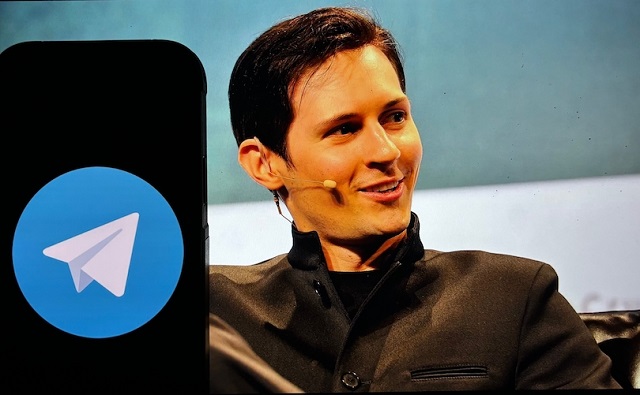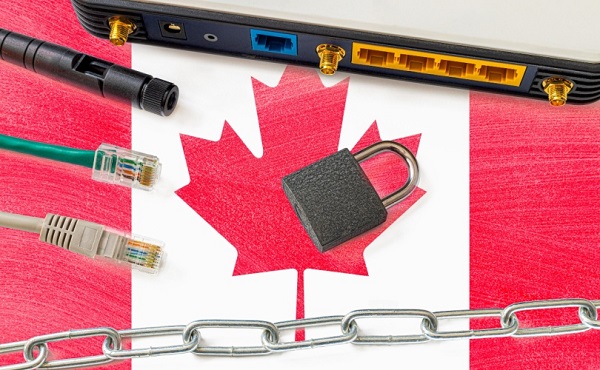Censorship Industrial Complex
Telegram founder Pavel Durov released from jail on $5 million bail, faces criminal charges

From LifeSiteNews
Durov’s lawyer David-Olivier Kaminski said, “The only statement I’d wish to make is that Telegram is in conformity with every aspect of European norms on digital matters. It is absurd to think that the head of a social network is being charged.”
Telegram co-founder and CEO Pavel Durov has been released from jail on bail but is forbidden from leaving France and must check in with the French police twice a week.
On Wednesday, August 28, Durov was released on 5 million euros (5,537,620 USD) bail. However, French authorities also indicted Durov on six charges related to allegedly illegal activity on the popular messaging app.
Politico quotes the Paris prosecutor’s office press release, stating that the charges include complicity in managing Telegram “in order to enable an illegal transaction in organized group.”
Durov was reportedly also charged with “complicity in the offenses of making available without legitimate reason a program or data designed for… organized gang distribution of images of minors presenting child pornography, drug trafficking.”
READ: Telegram founder tells Tucker Carlson that US intel agents tried to spy on user messages
Telegram “appears in multiple cases involving various offenses (child sexual abuse offenses, trafficking, online hate),” the prosecutor’s office stated, highlighting “Telegram’s almost total failure to respond to judicial requests.”
“When consulted, other French investigation departments and public prosecutors’ offices, as well as various Eurojust partners, notably Belgian, shared the same observation,” the French prosecutor added. “This led… to opening an investigation into the possible criminal responsibility of the managers of this messaging service.”
A French judge will now investigate these charges further.
The prosecutor also mentioned that a preliminary investigation into Telegram and its co-founder had already been opened in February. Politico reports that arrest warrants for both Telegram co-founder Pavel Durov and his brother Nikolai were issued by French authorities in March.
Durov’s lawyer David-Olivier Kaminski said, “The only statement I’d wish to make is that Telegram is in conformity with every aspect of European norms on digital matters. It is absurd to think that the head of a social network is being charged.”
READ: Arrest of Telegram founder Pavel Durov signals an increasing threat to digital freedom
Durov, who is a Russian, French, and UAE citizen, was arrested on August 24 after his private jet landed at Le Bourget airport. His arrest sparked outrage and concern among prominent free speech advocates such as Elon Musk and Tucker Carlson and has triggered diplomatic tensions between France, Russia, and the UAE, with the latter two offering support to Durov.
French President Emmanuel Macron denied the charges of Durov’s arrest being politically motivated.
“The arrest of the president of Telegram on French soil took place as part of an ongoing judicial investigation,” Macron wrote on X. “It is in no way a political decision. It is up to the judges to rule on the matter.”
However, if one of the main concerns of the prosecution is child sexual abuse and human trafficking allegedly facilitated through Telegram, as it has stated, other social media platforms would need to be charged as well. Reports in the New York Times and the Wall Street Journal revealed that social media giant Meta, which owns Facebook and Instagram, knew about its platforms being used to facilitate child sexual exploitation but neglected to solve the issue. Yet, Meta CEO Mark Zuckerberg has faced no legal consequences.
Censorship Industrial Complex
Pro-freedom group to expose dangers of Liberal ‘hate crime’ bill before parliamentary committee

From LifeSiteNews
Canada’s Liberal justice minister has confirmed that the legislation would allow a person to be criminally charged for social media posts deemed offensive by the government.
A top Canadian pro-freedom group has been asked to testify regarding the dangers of the Liberals’ proposed internet censorship legislation.
In an October 28 press release, the Democracy Fund (TDF) announced that the Standing Committee on Justice and Human Rights has invited them to appear at the House of Commons to debate Bill C-9, which experts have warned could kill free speech in Canada.
“Our lawyers have extensive experience defending Canadians accused of breaching speech codes or uttering speech deemed ‘offensive’ by authorities,” TDF litigation director Mark Joseph stated. “We look forward to sharing our legal expertise and concerns about Bill C-9 with the Committee.”
Bill C-9, the Combating Hate Act, has been blasted by constitutional experts as allowing empowered police and the government to go after those it deems have violated a person’s “feelings” in a “hateful” way.
Bill C-9 was brought forth in the House of Commons on September 19 by Justice Minister Sean Fraser. The Liberals have boasted that the bill will make it a crime for people to block the entrance to, or intimidate people from attending, a church or other place of worship, a school, or a community center. The bill would also make it a crime to promote so-called hate symbols and would, in effect, ban the display of certain symbols such as the Nazi flag.
Canada’s Liberal justice minister has confirmed that the legislation would allow a person to be criminally charged for social media posts deemed offensive by the government.
Currently, the legislation is undergoing debate as Canadian lawmakers discuss how best to frame and implement the bill. Issues with the legislation, as pointed out by TDF, include “broad and undefined language” that could allow for widespread censorship online.
TDF warned that the bill “could be used to justify increased censorship and restrict Canadians’ rights to peacefully assemble, protest, and speak freely, particularly on digital platforms.”
The Committee meeting, scheduled for November 6, is a crucial part of Parliament’s review process before the bill continues to its third reading in the House of Commons.
TDF’s warnings against the legislation echo statements from various pro-freedom legal groups across Canada.
As LifeSiteNews previously reported, Justice Centre for Constitutional Freedoms (JCCF) president John Carpay has warned that Canada will be a “police state by Christmas” if lawmakers pass three new bills introduced by the federal Liberal government of Prime Minister Mark Carney.
Carpay further predicted that Bill C-9 would “empower police” and the government to go after those it deems have violated a person’s “feelings” in a “hateful” way.
The proposed legislation mirrors a movement in Germany to restrict sharing controversial or anti-government content online by arresting citizens who posted content deemed ‘hateful’ by the German government.
As LifeSiteNews previously reported in June, German authorities conducted more than 180 operations across the country, targeting individuals accused of spreading hate and incitement online – most of them tied to content considered far-right.
Censorship Industrial Complex
Canada’s justice minister confirms ‘hate crimes’ bill applies to online content

From LifeSiteNews
Individuals could be criminally charged for social media posts or other online content deemed offensive by the government under the Combating Hate Act.
Canadian Justice Minister Sean Fraser admitted that his new “hate crime” bill would indeed allow a person to be criminally charged for social media posts deemed offensive by the government.
Recently asked about Bill C-9, the Combating Hate Act, Fraser said the bill would indeed apply to certain online content that involves the “willful promotion of hatred.”
“Generally speaking, the law will apply equally online as it does in real communities,” he said, adding, “just in the limited circumstances where there is the willful promotion of hatred against someone.”
As reported by LifeSiteNews, Bill C-9 has been blasted by constitutional experts as allowing empowered police and the government to go after those it deems have violated a person’s “feelings” in a “hateful” way.
Bill C-9 was brought forth in the House of Commons on September 19 by Fraser. The Liberals have boasted that the bill will make it a crime for people to block the entrance to, or intimidate people from attending, a church or other place of worship, a school, or a community center. The bill would also make it a crime to promote so-called hate symbols and would, in effect, ban the display of certain symbols such as the Nazi flag.
While being questioned by Conservative MP Andrew Lawton about Bill C-9, Fraser was asked if the new law would “affect what people can say and write on the internet” and also if people could be retroactively punished for online comments made today.
In reply, Fraser said, “The only circumstance where you could imagine some online comment attracting scrutiny under this law would attach to behaviour that is criminal today but would be punished less severely.”
He said that “(t)he willful promotion of hate is a crime today, but we want to recognize a distinct charge where that same behaviour uses certain symbols of hate to bring a higher degree of culpability.”
John Carpay of the Justice Centre for Constitutional Freedoms (JCCF) has blasted Bill C-9 as something that would “empower police” and the government to go after those it deems have violated a person’s “feelings” in a “hateful” way.
Also, as reported by LifeSiteNews, Conservative MP Leslyn Lewis called out the hypocrisy of Bill C-9 for being silent regarding rising “Christian hate.”
Lewis has warned before that Bill C-9 will open the door for authorities to prosecute Canadians’ speech deemed “hateful possibly.”
Carpay also lamented how the bill mentions “rising antisemitism” but says nothing about the arson attacks on Catholic and Christian churches plaguing Canada.
“Anti-Catholic hate is obviously not on the minister’s radar. If it were, he would have mentioned it when introducing the Combating Hate Act,” Carpay wrote.
Since taking power in 2015, the Liberal government has introduced numerous new bills that, in effect, censor internet content and restrict people’s ability to express their views.
-

 Alberta18 hours ago
Alberta18 hours agoFrom Underdog to Top Broodmare
-

 Media13 hours ago
Media13 hours agoCarney speech highlights how easily newsrooms are played by politicians
-

 Business2 days ago
Business2 days agoCanada’s attack on religious charities makes no fiscal sense
-

 International1 day ago
International1 day agoPrince Andrew banished from the British monarchy
-

 Business1 day ago
Business1 day ago“We have a deal”: Trump, Xi strike breakthrough on trade and fentanyl
-

 Crime1 day ago
Crime1 day agoCanada Seizes 4,300 Litres of Chinese Drug Precursors Amid Trump’s Tariff Pressure Over Fentanyl Flows
-

 Alberta1 day ago
Alberta1 day agoHow one major media torqued its coverage – in the take no prisoners words of a former Alberta premier
-

 Bruce Dowbiggin2 days ago
Bruce Dowbiggin2 days agoGet Ready: Your House May Not Be Yours Much Longer





